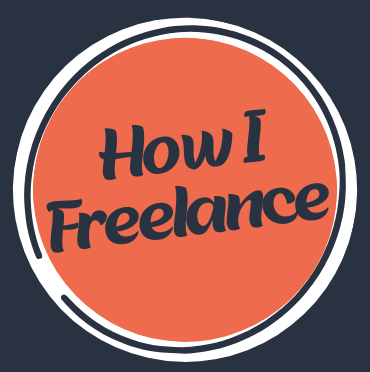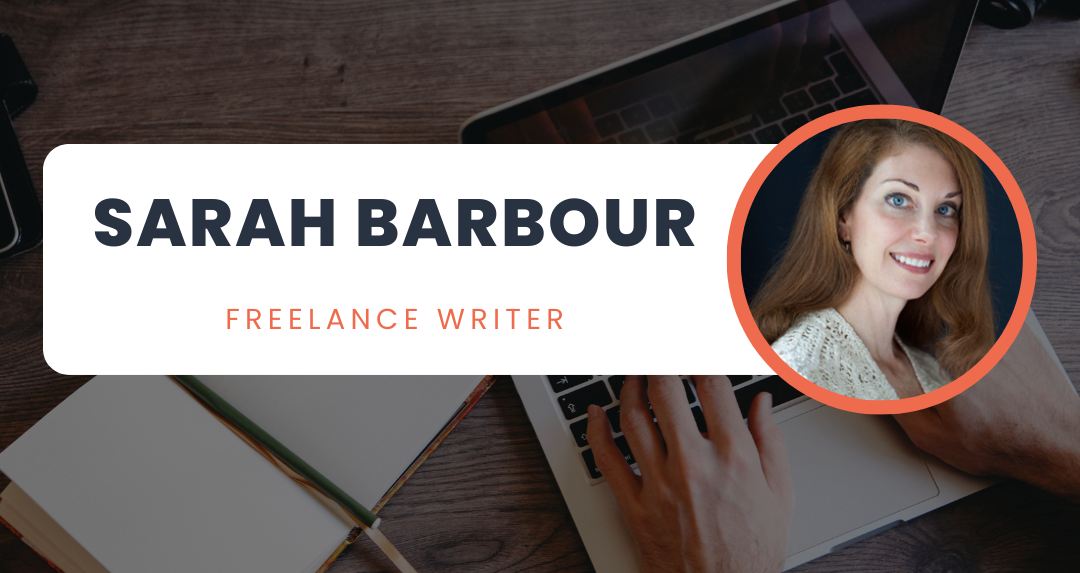Sarah started her freelance journey as an editor for self-published fiction nearly a decade ago. She made the jump to writing in 2021 – and quickly discovered a new niche that provided unexpected financial stability for her family.
When did you start freelancing?
I began freelance editing in 2014. In 2021, I moved over to full-time freelance writing.
Why did you choose to pursue freelance work?
Ten years ago, I was ready to start earning money after being home with my kids for a decade. Despite being over-educated (two master’s degrees), I didn’t have a lot of marketable skills and I wasn’t successful finding full-time work. I turned to freelancing because I was afraid I’d never get a “real” job again.
What niche(s) do you work in?
My niche is finance, with a focus on private equity and mergers & acquisitions. I work primarily with mid-sized to large accounting firms and M&A advisors.
I chose that niche because I like money – both earning and learning about it! I wanted a niche that paid well, and finance seemed to be a good fit.
It’s been a steep learning curve, as I have no formal background in finance, but it’s been worth it. I encourage other freelancers to stay open to areas outside their backgrounds and expertise.
What types of projects do you work on?
Blog posts make up about 75% of my projects. I also do some reports, white papers, thought leadership pieces and editing.
Where do you freelance from?
Mostly my living room couch (located in Oregon), which is terrible for my posture! When family traffic gets too crazy, I retreat to sitting on my bed, which is worse. I’m making an effort to work more at a table or desk.
Tell us about two tools you rely on to run your business.
Name one thing that’s surprised you about freelancing.
How much confidence I’ve gained. It’s spilled over into all areas of my life now.
Made any big mistakes during your freelance journey?
Waiting seven years to move from editing self-published fiction to writing for corporations. The pay is much better and the work is more interesting.
What are you proudest of with your business?
I’m on track to make six figures this year! It’s been a goal (maybe more like a daydream) for ages. In my last full-time job, I made $38,000 a year, so this is a big step up.
There’s lots of advice out there for freelancers. What advice do you agree with?
You’re the boss! It’s absolutely essential to make the shift from the employee “tell me what to do” mindset to taking responsibility for every aspect of your business. This means doing things like:
➡️ Not just waiting for assignments. Instead suggest projects to clients and get involved with their strategy.
➡️ Doing some research before approaching other freelancers for advice and asking high-quality questions.
➡️ Hiring good help when you need it. (My advice: Find a good CPA!)
➡️ Setting up a retirement plan and making regular contributions.
➡️ Understanding your tax obligations.
➡️ Providing exceptional service to your clients.
What common advice do you disagree with?
There’s a lot of pressure to only charge project rates. But honestly, I think it’s fine to charge by the hour or by the word (for writers), provided the rates are good.
For example, I have a client who is constantly coming up with out-of-scope revisions. They’re paying me a very respectable hourly rate, and it saves us both the hassle of constantly revising a project rate to take changes into consideration. Not to mention that per-word and hourly rates are pretty standard with publications and agencies, respectively.
If everything else looks good, don’t make project rates your hill to die on.
What areas of opportunities do you see for current or future freelancers?
I think we still have some time before AI can produce content as well as human freelancers can, but it’s coming. This is a really good time to build a strong network – I think relationships are going to be increasingly important as the ‘bots take over. It’s also a good time to explore strategy, brush up on your editing skills and learn how to use the various AI tools (they go way beyond ChatGPT!) that are becoming available.
There is a lot of emotion, moralizing, fearmongering and hype around AI. I believe it poses a serious threat to the freelance writing industry, but it will present opportunities as well. Keep a clear head and stay positive!
You’re the boss! It’s absolutely essential to make the shift from the employee “tell me what to do” mindset to taking responsibility for every aspect
of your business.
Leave us with some words of wisdom.
Allow me to get on my soapbox for a moment: I have some pretty strong opinions on courses and coaches. There are a lot of programs out there with very slick marketing and very high price tags. Some of them are great, some are terrible. Even the best ones aren’t a good fit for everyone.
My rule of thumb: if you can’t cover the cost with your freelance income, you don’t need it. There is enough free or very inexpensive information out there that anyone who is serious about freelance should be able to at least get started. You do not need a $1,000 or $3,000 or $6,000 course.
I want to emphasize that I’m not opposed to investing in yourself. I spent $5,000+ on coaching over the past year, and it paid off very nicely. But I held off making that investment until I was sure of the direction I wanted to go in my career and what I wanted to get out of working with a coach. I was also making enough by that point to pay the installments without going into debt or digging into my savings.
If you’re going to take a course or work with a coach, talk to people who’ve done it themselves. Be leery of reviews full of affiliate links, and look for programs that offer a refund period.
Connect with Sarah! Find her on LinkedIn or online at aeroplane.ink.

